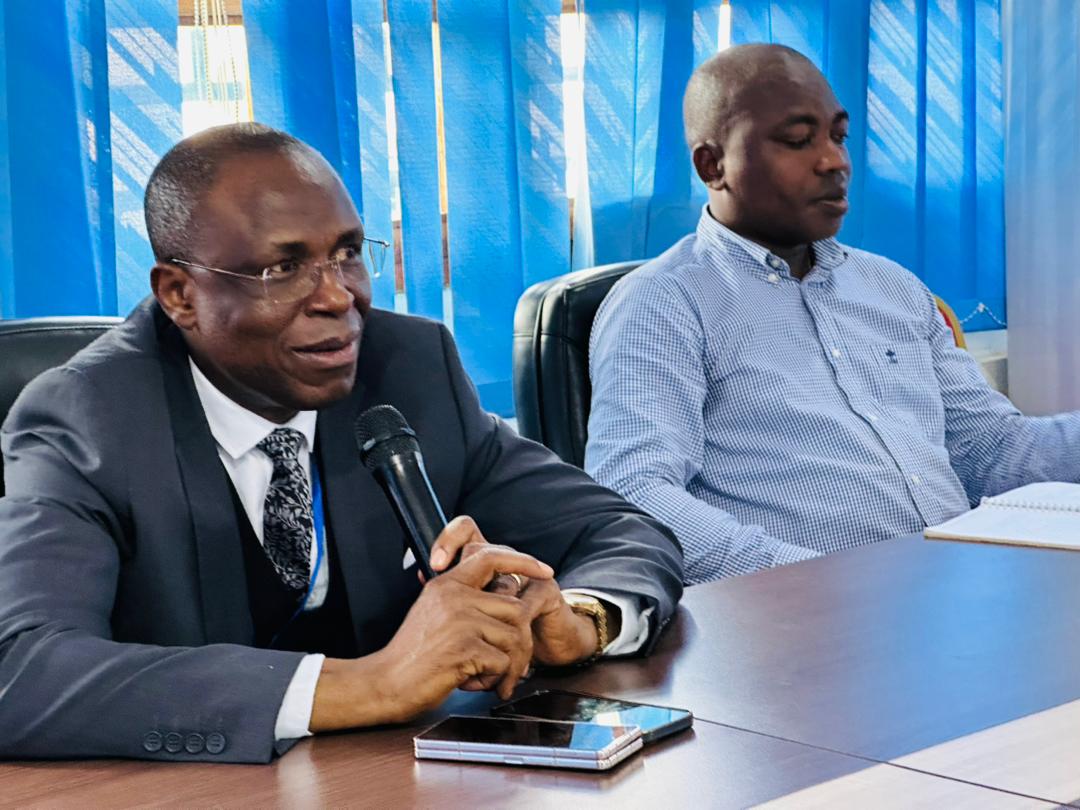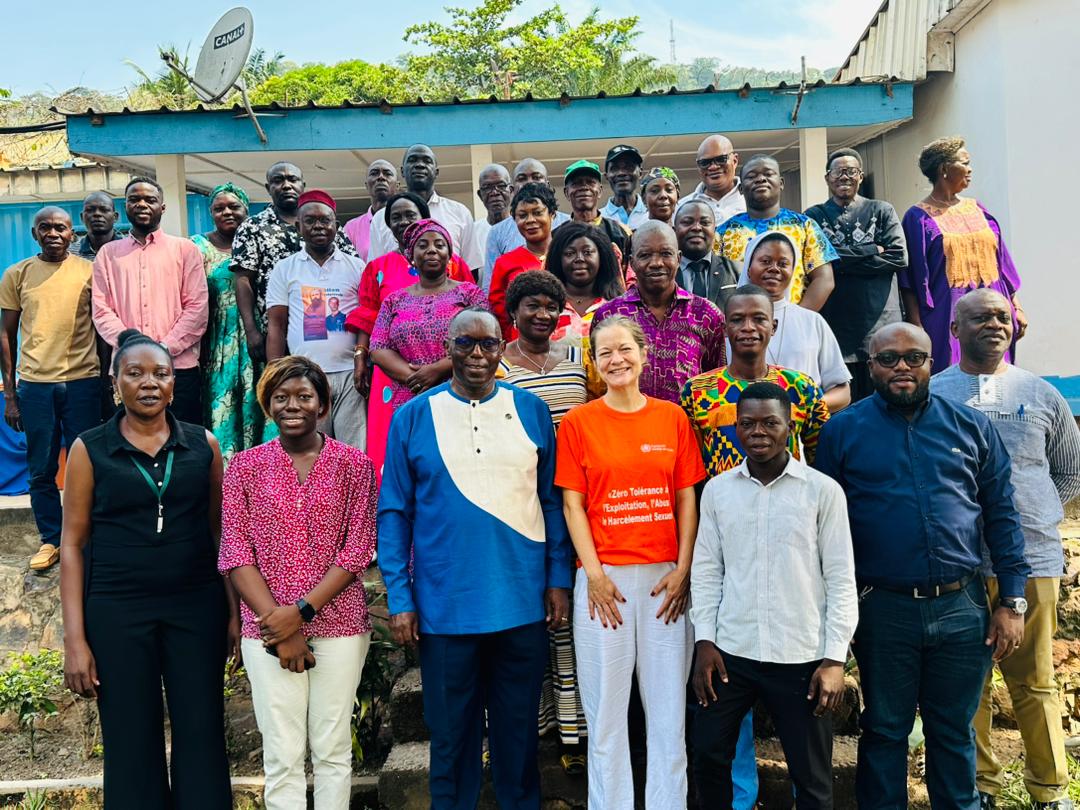The Health Cluster and the Country Office of the World Health Organization (WHO) in the Central African Republic (CAR), with technical support from the Global Health Cluster (GHC), organized a collaborative workshop on the localization of humanitarian action on 26-27 November 2024. This initiative is part of the GHC localization strategy. The workshop, dedicated to the Health Cluster in CAR, brought together 33 local and national actors, including representatives of national non-governmental organizations (NGOs), civil society organizations (CSOs), NGO forums, and focal points from key ministries such as the Ministry of Humanitarian Action, Solidarity, and National Reconciliation.

Photo ©OMS RCA: Dr. Ngoy Nsenga, WHO Country Representative in the Central Africa Republic
Participants began the workshop with a
discussion led by the WHO Country Representative in CAR, Dr. Ngoy Nsenga. He
emphasized the importance of capacity building, good governance, and the
central role of local actors in ensuring the sustainable impact of health
interventions. Dr Nsenga highlighted that affected communities are the primary
actors in any response. The workshop also included presentations on key topics
related to localization: the prevention of sexual exploitation, abuse, and
harassment (PSEAH); coordination and humanitarian principles; the functioning
of the Health Cluster; localization strategies of the Humanitarian Fund and the
Humanitarian Country Team; as well as key localization concepts and their application in
other contexts, such as Burkina Faso.
Using these inputs, participants worked
in groups to identify challenges to localization in CAR, including a lack of
visibility and information, limited access to funding, structural issues, a
restrictive external environment, and specific challenges for national NGOs and
CSOs, such as credibility and information sharing.

The participants then developed a series
of recommendations, forming the foundation for the Health Cluster's
localization action plan in CAR. These recommendations aim to strengthen the
capacities of local and national actors through regular training, improved
access to funding, and enhanced coordination with local authorities and
community leaders. They also encourage the adoption of transparent governance
policies, resource sharing, establishing collective advocacy mechanisms, and
promoting innovative projects to maximize local impact. Particular emphasis was
placed on a collaborative and inclusive approach, promoting consortiums and
designating a "localization champion" to ensure ownership of
initiatives at the local level.
Finally, the Health Cluster in CAR, with
technical support from the GHC, presented the workshop's outcomes to the
Inter-Cluster Coordination Group and the Localization Task Force in Bangui.
This initial dissemination phase will be followed by a follow-up committee
composed of local and national actor Health Cluster members finalizing the
action plan. The plan will then be presented to the Cluster members for
approval in December 2024, with implementation scheduled to begin in 2025.
The commitment and expertise of local and
national actors in CAR are undeniable, as is their determination to ensure
local leadership in the health humanitarian response in close collaboration
with international partners. This momentum reinforces the central role of CAR's
Health Cluster in the localization of health clusters, contributing to the
operationalization of the GHC's localization strategy.
